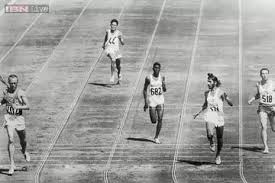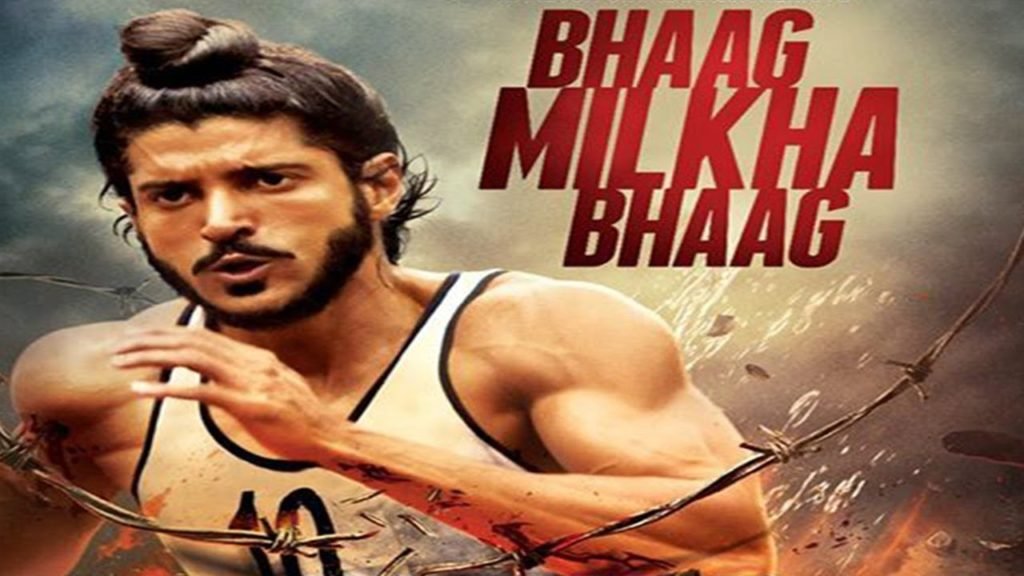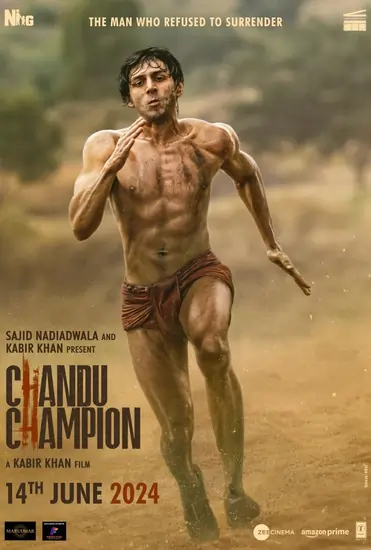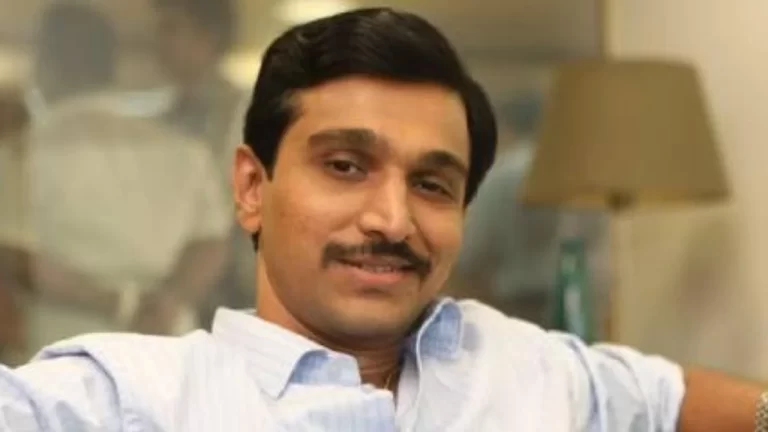
Milkha Singh also known as The Flying Sikh, was an Indian track and field sprinter who was introduced to the sport whileserving in the Indian Army. He is the only athlete to win gold at 400 metres at the Asian Games as well as the CommonwealthGames. He also won gold medals in the 1958 and 1962 Asian Games. He represented India in the 1956 Summer Olympics inMelbourne, the 1960 Summer Olympics in Rome and the 1964 Summer Olympics in Tokyo. He was awarded the Padma Shri,India’s fourth-highest civilian honour, in recognition of his sporting achievements.
The race for which Singh was best remembered is his fourth-place finish in the 400 metres final at the 1960 Olympic Games,which he had entered as one of the favourites. He led the race till the 200m mark before easing off, allowing others to passhim. Various records were broken in the race, which required a photo-finish and saw American Otis Davis being declared thewinner by one-hundredth of a second over German Carl Kaufmann. Singh’s fourth-place time of 45.73 seconds was the Indiannational record for almost 40 years.From beginnings that saw him orphaned and displaced during the Partition of India, Singh has become a sporting icon in hiscountry. In 2008, journalist Rohit Brijnath described Singh as “the finest athlete India has ever produced”.Singh died of COVID-19 complications on 18 June 2021 at the age of 91.
Milkha Singh Biography :
- Full Name :Milkha Singh
- Nike Name :The Flying Shikh
- Profession : Athlete
- Hight : 5 foot 10 inch
- Weight : 70
- Date Of Birth : 17 October 1935
- Birth Place :Govindpuri Muzaffargarh City,Punjab
- Hometown :Chandigarh,India
- School : A Village School Pakistan
- Qulification :5 Standard in School
- Nationality :Indian
- Religion :Sikhism
- Hobbies : Working,Playing Golf
- Eye Colour : Dark Brown
- Hair Colour : Salt & Pepper
- Marital Status :married
- Zodiac sign :Scorpio
Early life :
Milkha Singh was born on 20 November 1929. He was born in a Sikh family of Rathore Rajput origin. His birthplace wasGovindpura,a village 10 kilometres (6.2 mi) from Muzaffargarh city in Punjab Province, British India (now Muzaffargarh District,Pakistan). He was one of 15 siblings, eight of whom died before the Partition of India. He was orphaned during the Partitionwhen his parents, a brother and two sisters were killed in the violence that ensued. He witnessed these killings.Escaping the troubles in Punjab, where killings of Hindus and Sikhs were continuing, by moving to Delhi, India, in 1947, Singhlived for a short time with the family of his married sister and was briefly imprisoned at Tihar jail for travelling on a train withouta ticket. His sister, Ishvar, sold some jewellery to obtain his release.
He spent some time at a refugee camp in Purana Qila andat a resettlement colony in Shahdara, both in Delhi.Singh became disenchanted with his life and considered becoming a dacoit[b] but was instead persuaded by one of hisbrothers, Malkhan, to attempt recruitment to the Indian Army. He successfully gained entrance on his fourth attempt, in 1951,and while stationed at the Electrical Mechanical Engineering Centre in Secunderabad he was introduced to athletics. He hadrun the 10 km distance to and from school as a child and was selected by the army for special training in athletics after finishingsixth in a compulsory cross-country run for new recruits. Singh has acknowledged how the army introduced him to sport, sayingthat “I came from a remote village, I didn’t know what running was, or the Olympics”.
Milkha Singh International career :
Singh represented India in the 200m and 400m competitions of the 1956 Melbourne Olympic Games. His inexperiencemeant that he did not progress from the heat stages but a meeting with the eventual 400m champion at those Games, CharlesJenkins, both inspired him to greater things and provided him with information about training methods.In 1958, Singh set records for the 200m and 400m in the National Games of India, held at Cuttack, and also won goldmedals in the same events at the Asian Games. He then won a gold medal in the 400m (440 yards at this time) competition atthe 1958 British Empire and Commonwealth Games with a time of 46.6 seconds.
This latter achievement made him the firstgold medalist at the Commonwealth Games from independent India. Before Vikas Gowda won the gold in 2014, Milkha wasthe only Indian male to have won an individual athletics gold medal at those Games.Singh was persuaded by Jawaharlal Nehru to set aside his memories of the Partition era to race successfully in 1960 againstAbdul Khaliq in Pakistan, where a post-race comment by the then General Ayub Khan led to him acquiring the nickname of TheFlying Sikh. Some sources say that he set a world record of 45.8 seconds in France, shortly before the Rome Olympicsin the same year but the official report of the Games lists the record holder as Lou Jones, who ran 45.2 at Los Angeles in 1956.At those Olympics, he was involved in a close-run final race in the 400m competition, where he was placed fourth.Singh had beaten all the leading contenders other than Otis Davis, and a medal had been anticipated because of his goodform.

However, he made an error when leading the race at 250m, slowing down in the belief that his pace could not besustained and looking round at his fellow competitors. Singh believes that these errors caused him to lose his medalopportunity and they are his “worst memory”. Davis, Carl Kaufmann and Malcolm Spence all passed him, and a photo-finishresulted. Davis and Kaufman were both timed at a world-record breaking 44.9 seconds, while Spence and Singh went underthe pre-Games Olympic record of 45.9 seconds, set in 1952 by George Rhoden and Herb McKenley, with times of 45.5 and45.6 seconds, respectively. The Age noted in 2006 that “Milkha Singh is the only Indian to have broken an Olympic trackrecord. Unfortunately he was the fourth man to do so in the same race”but the official Olympic report notes that Davis hadalready equalled the Rhoden/McKenley Olympic record in the quarter-finals and surpassed it with a time of 45.5 seconds in thesemi-finals.At the 1962 Asian Games, held in Jakarta, Singh won gold in the 400m and in the 4 x 400m relay.He attended the 1964 OlympicGames in Tokyo, where he was entered to compete in the 400m, the 4 x 100m relay and the 4 x 400m relay. He did not takepart in either the 400m or the 4 x 100m relay[d] and the Indian team of Milkha Singh, Makhan Singh, Amrit Pal and Ajmer Singhwere eliminated when they finished fourth in the heat stages of the 4 x 400m.
There have been claims that Singh won 77 of his 80 races, but these are spurious. The number of races in which heparticipated is not verified, nor is the number of victories, but he lost a 400m race at the 1964 National Games in Calcutta toMakhan Singh and he did not finish first in any of his four races at the 1960 Olympic Games or the aforementioned qualificationraces at the 1956 Olympics.Singh’s time in the 1960 Olympics 400m final, which was run on a cinder track, set a national record that stood until 1998 whenParamjit Singh exceeded it on a synthetic track and with fully automatic timing that recorded 45.70 seconds. Although Singh’sOlympic result of 45.6 seconds had been hand-timed, an electronic system at those Games had determined his record to be45.73.
Personal life :
As of 2012, Singh lived in Chandigarh.He met Nirmal Saini, a former captain of the Indian women’s volleyball team in Ceylon in1955; they married in 1962 and had three daughters and a son, the golfer Jeev Milkha Singh. In 1999, they adopted the seven-year-old son of Havildar Bikram Singh, who had died in the Battle of Tiger Hill.
Milkha Singh Won Medal
| Event | Category | Medal |
| 1958 Asian Games | 200 m | Gold |
| 1958 Asian Games | 400 m | Gold |
| 1958 Commonwealth Games | 440 yards | Gold |
| 1962 Asian Games | 400 m | Gold |
| 1962 Asian Games | 4X400 m relay | Gold |
| 1958 Cuttack National Games | 200 m | Gold |
| 1958 Cuttack National Games | 400 m | Gold |
| 1964 Calcutta National Games | 400 m | Silver |
Honours :
- Padma Shri : 1959






